Find catharsis in this new LAXART exhibition tackling loneliness and isolation
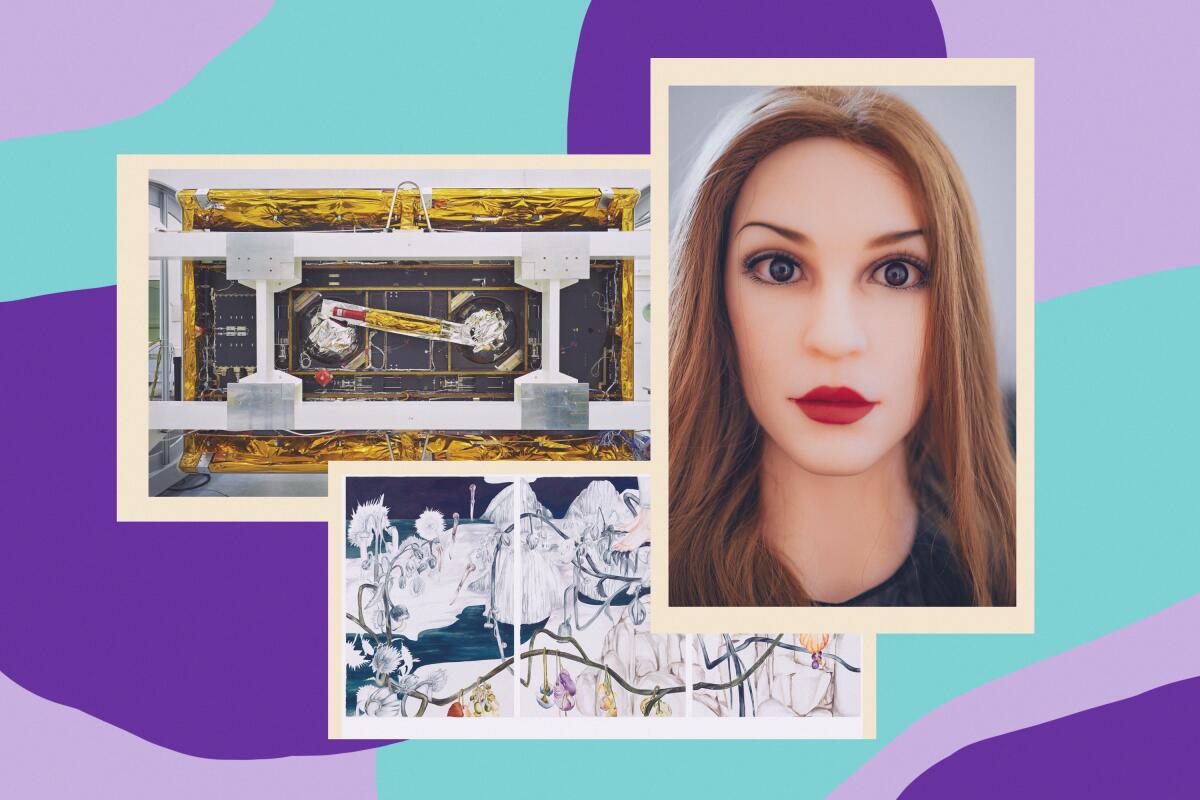
Aching loneliness. Mental angst. Isolation and disconnection. Unshakable melancholy.
As we emerge from 2021, a new and powerful exhibition at LAXART — “All the Lonely People” — addresses these existential conditions through painting, sculpture, photography, video and sound art by 10 international artists. The works — some created years ago during periods of solitude in the artists’ lives, others conceived of recently for the show — explore seclusion within the context of the current pandemic.
The West Hollywood gallery space is wrapped in Andrea Zittel’s wallpaper artwork, a lavish, decorative pattern that, upon closer inspection, is comprised of aerial photographs of remote locations where urban development butts up against the open Mojave Desert. The Joshua Tree-based artist’s 2008 piece is called “Wall Sprawl (Next to Las Vegas Bay),” and the busy, repetitive pattern lends a domestic, if somewhat unsettling, vibe to the gallery — lockdown wasn’t all that long ago, and for some viewers, it might conjure being trapped at home, the mind whirring with concerns.
Another work in the show, Susan Philipsz’s 2021 sound installation, “Hermitage,” punctuates this feeling. The Berlin-based artist’s spare, hauntingly beautiful voice — performing a melodic version of a Scottish punk song from the ’80s, “Trees and Flowers” — echoes from within a steel sculptural barrel. It plays on a four-and-a-half-minute loop, alternately mournful and hopeful.
“All the Lonely People” marks the 25th anniversary of the Pacific Palisades artist residency Villa Aurora, which is presenting the exhibition. The show debuted in Berlin this fall, and the L.A. iteration features several new and different works, some of which were commissioned. About two-thirds of the participating artists — including Philipsz and the Berlin-based Thomas Struth and Saâdane Afif — are former Villa Aurora fellows.
Collectively, the 15 works in the show feel, if not optimistic, then oddly cathartic. The hermit, after all, may be a reclusive character but one who is also wise, emerging from a period of introspection and reflection with newfound perspective.
“The idea for the show came up during the first lockdown — everyone was experiencing isolation at the same time,” says exhibition curator Nana Bahlmann, who lives in Berlin. “And in art, we find a commonality and solace.”
Here’s her take on several works in the show.
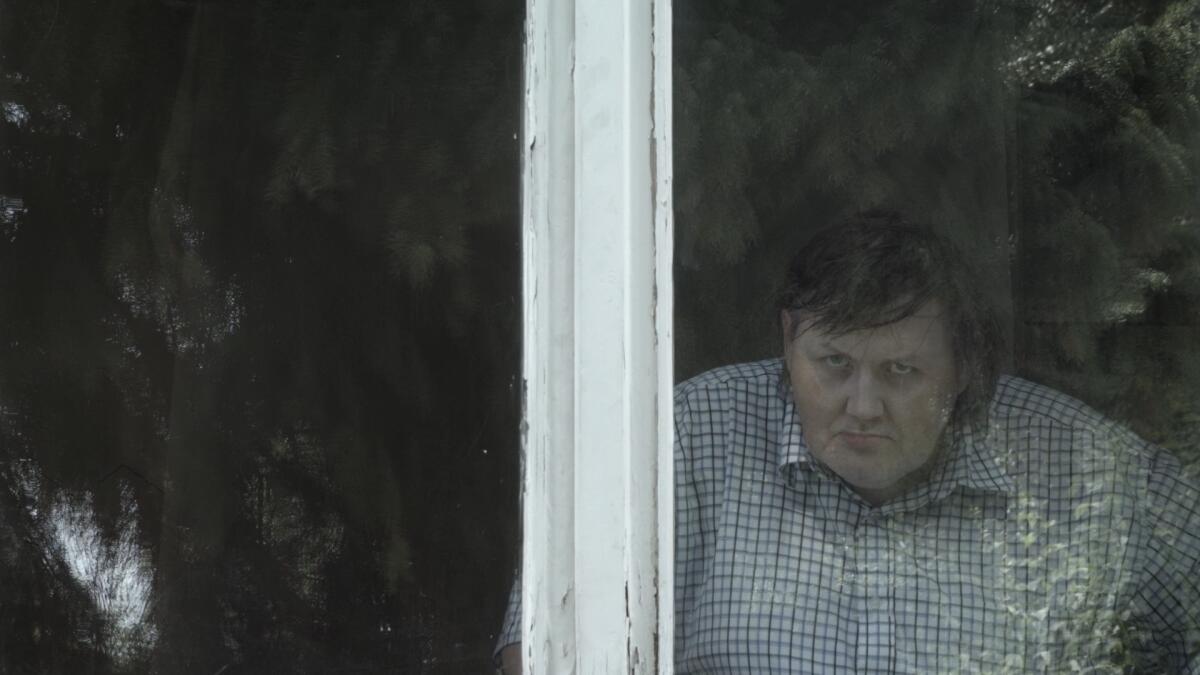
“Life Track” (2016). “This is the very first piece you see in the exhibition — it’s a direct encounter. It’s a video by Georgian artist Vajiko Chachkhiani. A man limps up to the window — he’s in an institution for terminally ill patients in Berlin — and he looks out the window and stares at the viewer for more than three minutes. I just found his gaze so incredibly captivating. There’s a clear separation between him and the outside world; at the same time, there’s this relation to the viewer through his gaze. It’s an intimate experience; a lot happens in that exchange.”
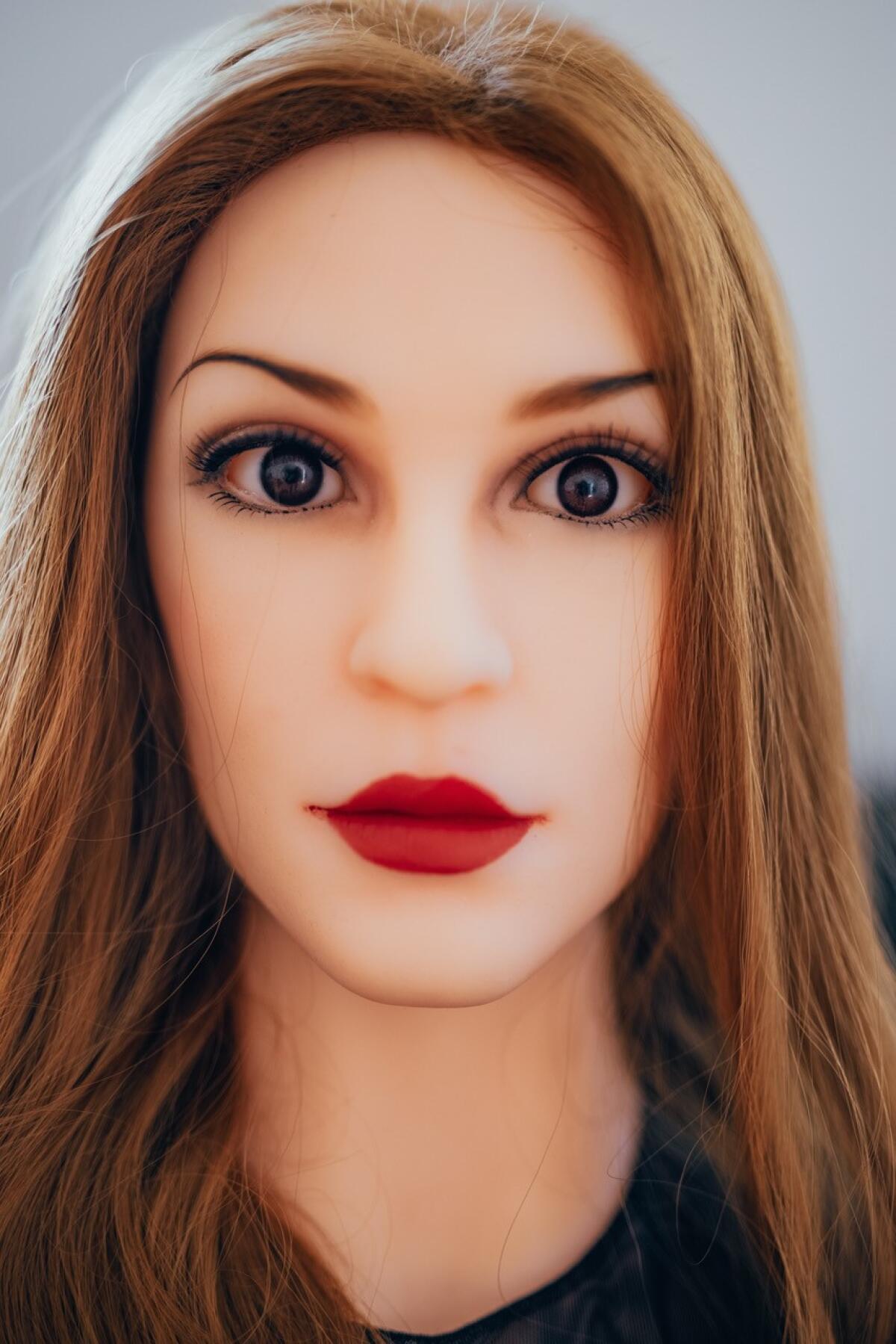
“Representative” (2021). “This is a life-sized, so-called ‘real doll,’ an animatronic doll made from a silicone-like material by a company in China that manufactures sex dolls. It sits in the exhibition space at the end of a hallway, all by itself. It’s equipped with AI and is an all-encompassing self-portrait of the artist, Louisa Clement. It looks like her — they did 3D scans of her body — and the doll knows everything about her. She perceives presence around her and follows you with her eyes or speaks. I included this because it’s an incarnation of the digital profiles we create for ourselves. During the pandemic, obviously, the digital avatars we had out there in the world became that much more important.”
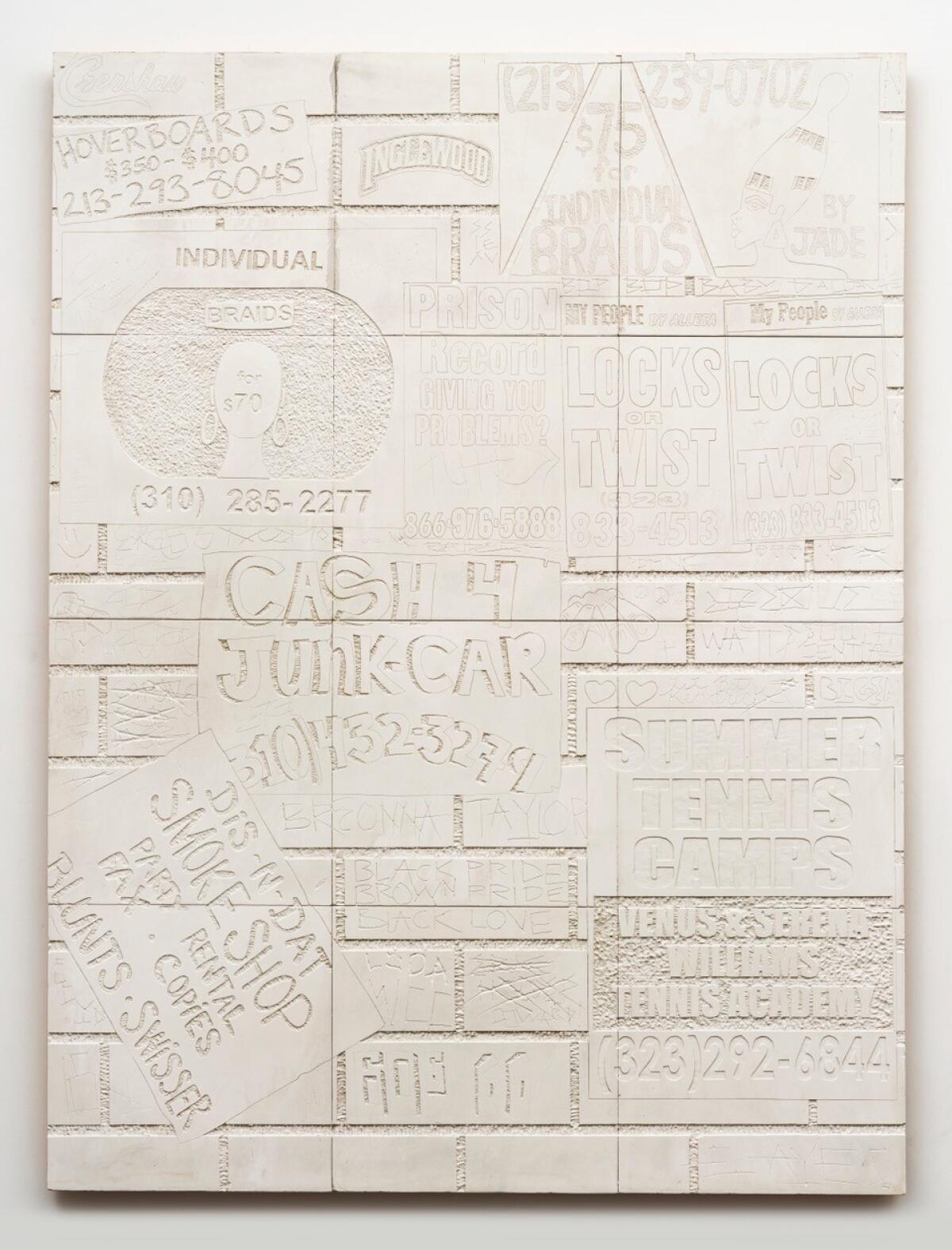
“Untitled” (2021). “This is a monochrome plaster relief in the shape of a brick wall in which the artist, Lauren Halsey, engraves representations of African American identity from her neighborhood, South Central L.A. There are personal inscriptions, political messages, advertisements for goods and services you’d find in the neighborhood, like a hairstylist for braids or the Venus & Serena Williams Tennis Academy. All these individual signages you see on the street — and the street itself — is almost like a collective hermitage or refuge from the gentrification and systemic oppression that people are faced with in her neighborhood.”
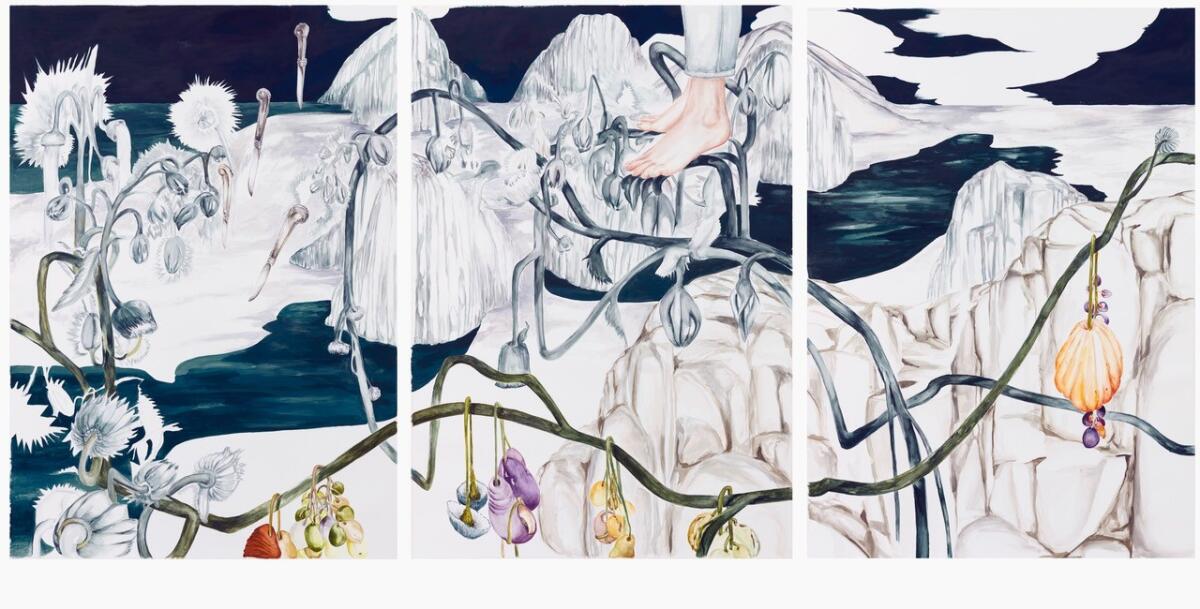
“Still Life at 12 o’clock” (2021). “This is a large-scale, three-panel watercolor by April Street. It’s completely crafted from imagination, a surrealistic, dreamlike landscape. But she anchors her immediate surroundings in it, like her own feet, floating down from above. It’s almost a metaphor for the artist’s imagination and the studio practice. It speaks to how she’s partly rooted in her art and also outside of it. It also speaks to the aspect of isolation that is needed for inspiration, imagination and contemplation in the artist’s studio — in which whole worlds can come into existence.”
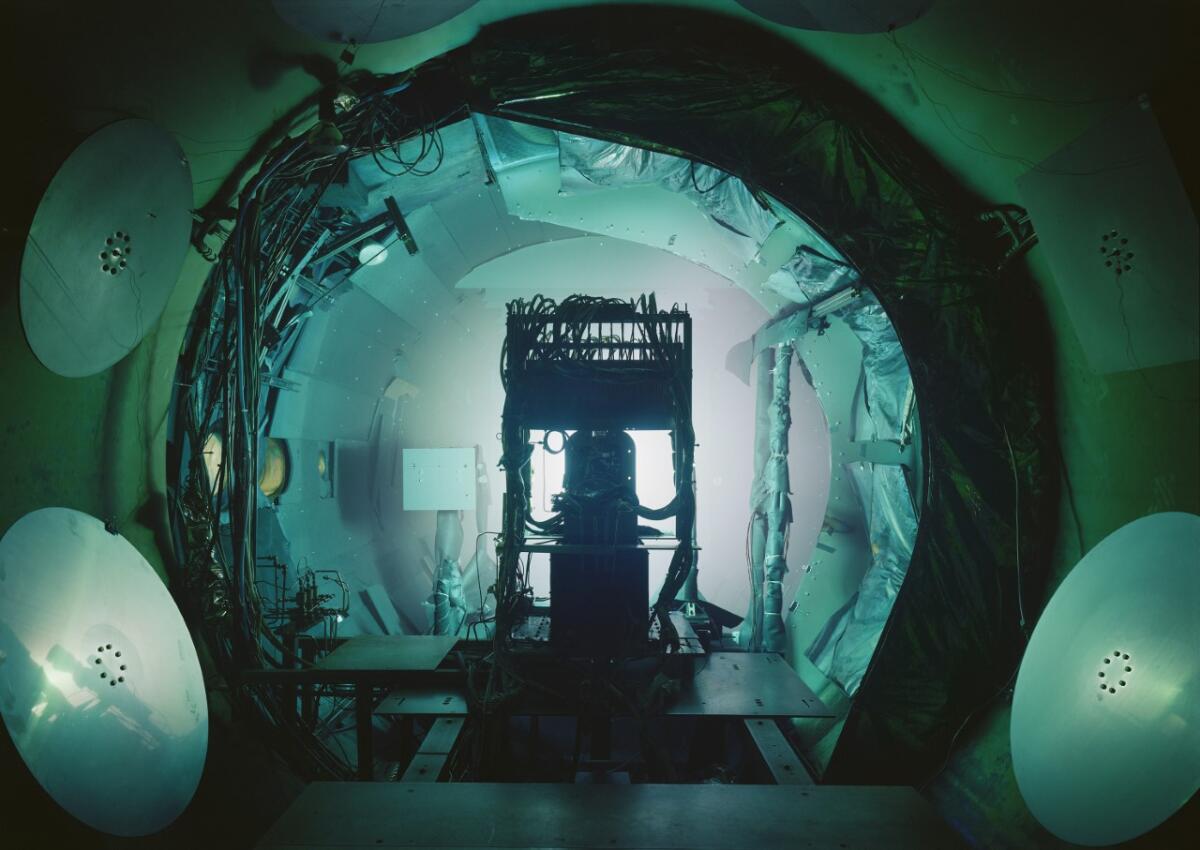
“Vacuum Chamber, JPL, Pasadena” (2013) and “GRACE-Follow-On Bottom View, IABG, Ottobrunn” (2017). “These are two photographs that relate to outer space, the most remote place and boundless distance from Earth that is imaginable. They’re part of a really compelling series by Thomas Struth of scientific research facilities. One is of JPL in Pasadena, a vacuum chamber, a rigid, cavelike enclosure simulating conditions in space. The other is at a German research facility depicting twin satellites. What’s so beautiful about the [latter] idea is it is an American-German project, and these two satellites are launched into space, floating around Earth about 140 miles from each other, for years. There’s isolation and simultaneity — in a way, it mirrors what we went through during lockdown.”
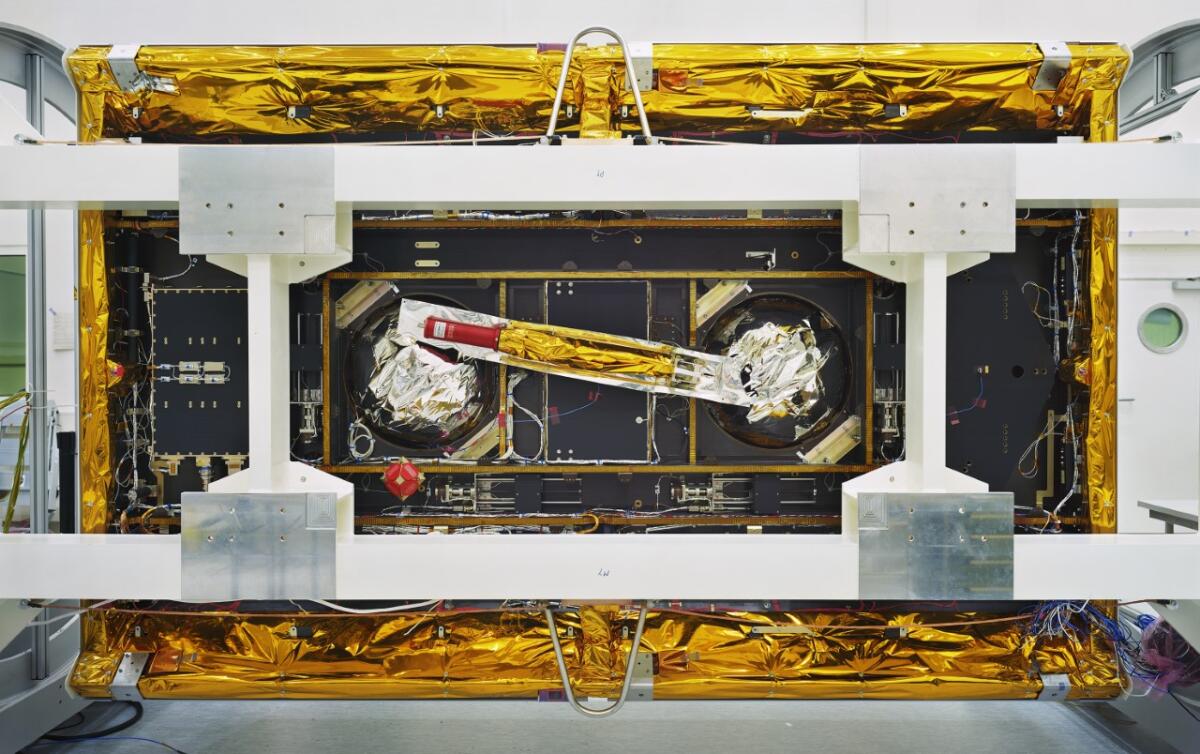
More to Read
The biggest entertainment stories
Get our big stories about Hollywood, film, television, music, arts, culture and more right in your inbox as soon as they publish.
You may occasionally receive promotional content from the Los Angeles Times.











